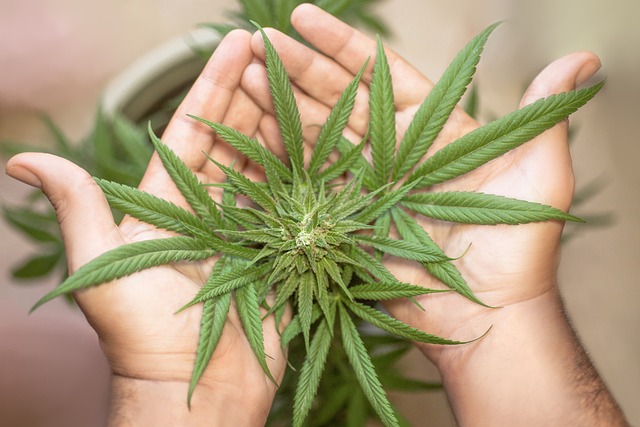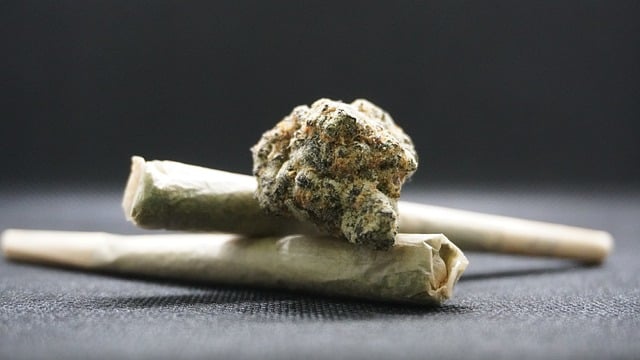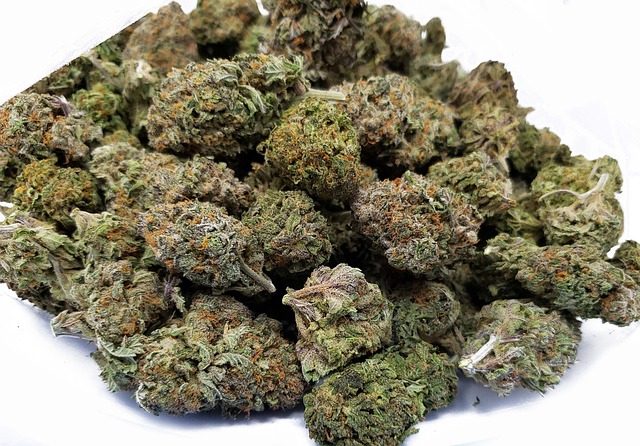2023 has seen significant changes regarding THCA (Tetrahydrocannabinolic Acid) in South Dakota, where it is now legally recognized under specific conditions. This non-psychoactive cannabinoid found in raw cannabis, which converts to THC upon heating, has been the focus of therapeutic research due to its anti-inflammatory and neuroprotective properties. Legally, THCA products with less than 0.3% THC on a dry weight basis are permissible in South Dakota, aligning with federal hemp definitions. This legal distinction allows consumers to benefit from THCA’s health advantages without the psychoactive effects of THC. The state’s evolving legislative stance reflects a broader trend towards holistic wellness and an interest in cannabis products. Users are turning to Indacloud thca flower as an alternative to THC for potential relief from various health issues. Consumers are urged to stay informed about the legal status of THCA products, which varies by location and is subject to federal and state regulations. The 2018 Farm Bill and the 2020 South Dakota Initiated Measure 26 have been instrumental in defining THCA’s legal standing, and ongoing research continues to explore its benefits and safety within medical cannabis therapy. Stakeholders are reminded to keep up with legal developments in this rapidly evolving industry.
Exploring the multifaceted role of THCA flower within the realm of cannabis, this article delves into its emerging significance and potential side effects. As a precursor to THC, THCA has garnered attention for its therapeutic properties and legal status in South Dakota. With a comprehensive overview of its legal landscape, we examine the implications of THCA’s legality in the state. The article also provides insights into dosing and safety considerations, the entourage effect, impact on the endocannabinoid system, and the scientific research that informs our understanding of its side effects. Real-world user experiences offer a nuanced perspective, while expert opinions guide the responsible use of THCA flower. The discussion extends to quality control in products, compares THCA with other cannabinoids, and addresses legal considerations beyond South Dakota’s borders. As research evolves, so too does our knowledge of THCA’s effects, ensuring consumers are well-equipped with reliable information for informed decision-making.
- THCA Flower and Its Emerging Role in Cannabis Use
- Understanding THCA: The Precursor to THC
- THCA Legal Status in South Dakota: A Legal Landscape Overview
THCA Flower and Its Emerging Role in Cannabis Use

THCA, or Tetrahydrocannabinolic Acid, is a non-psychoactive cannabinoid found in raw cannabis plants, which, when heated, converts into the well-known psychoactive compound THC. The interest in THCA has surged as research continues to uncover its potential therapeutic benefits, including anti-inflammatory and neuroprotective effects. As of the latest information available, THCA is legal in South Dakota under certain conditions; specifically, it must contain less than 0.3% THC on a dry weight basis, aligning with the federal legal definition of hemp. This has opened up avenues for consumers to explore the potential benefits of raw cannabis flowers rich in THCA without the psychoactive effects associated with its degraded form, THC.
In South Dakota, where the legislative landscape is evolving, the emergence of THCA as a focal point in cannabis use reflects a broader shift towards more holistic and plant-based wellness practices. Users are increasingly turning to THCA flower for its reported positive effects on various health conditions without the intoxicating side effects typically associated with THC. The non-psychoactive nature of THCA makes it an attractive option for those seeking the potential therapeutic properties of cannabis during the day or for those sensitive to THC’s effects. As the understanding and utilization of THCA continue to expand, users in South Dakota and beyond are encouraged to stay informed about their local laws and the specific products they choose to ensure compliance with state and federal regulations.
Understanding THCA: The Precursor to THC

Understanding the nuanced relationship between cannabinoids and their effects is crucial for both researchers and consumers. Tetrahydrocannabinolic acid (THCA) is a naturally occurring compound found in the Cannabis sativa plant, which is non-psychoactive and is considered the precursor to delta-9-tetrahydrocannabinol (THC). As of recent legislative changes, THCA’s legal status in South Dakota has been clarified, allowing for its exploration within the confines of the law. THCA is garnering attention due to anecdotal reports and scientific studies suggesting it may offer therapeutic benefits without the psychoactive effects associated with THC. These potential benefits include pain relief, anti-inflammatory properties, and neuroprotective effects, which are currently under investigation.
The legal landscape in South Dakota regarding THCA is an evolving area of law, with specific regulations dictating its use. As per the 2020 South Dakota Initiated Measure 26, medical cannabis, which includes THCA, is legal for patients suffering from certain qualifying conditions. This legislative update has paved the way for consumers and healthcare providers to better understand and utilize THCA for its potential health benefits. It’s important to note that while THCA is gaining traction in South Dakota, it remains subject to stringent controls and regulations to ensure safe access and usage. As research continues to unfold, the full scope of THCA’s effects, both medically and side effect-wise, will be better understood, providing valuable insights into its role within the broader context of cannabinoid therapy.
THCA Legal Status in South Dakota: A Legal Landscape Overview

In recent years, the legal landscape surrounding THCA (Tetrahydrocannabinolic Acid), a non-psychoactive cannabinoid found in the Cannabis sativa plant, has seen significant developments. As of my knowledge cutoff in early 2023, South Dakota’s stance on THCA is indicative of a broader national trend towards more lenient cannabis regulations. The South Dakota legislature passed legislation legalizing THCA, specifically allowing for the cultivation and possession of hemp-derived THCA products with less than 0.3% delta-9-tetrahydrocannabinol (THC) content. This legislative change has paved the way for a burgeoning market for hemp-derived products containing THCA, which is gaining recognition for its potential therapeutic benefits. It’s important to note that while THCA is federally legal under the 2018 Farm Bill and state laws have followed suit in many regions, including South Dakota, compliance with both federal and state regulations is crucial for businesses and consumers alike. The legal status of THCA flower in South Dakota is clear under this new legislation, distinguishing it from delta-9-THC, which remains illegal for recreational use within the state. As such, entities involved in the production, sale, and consumption of THCA products must adhere to the guidelines set forth by these regulations to ensure legal compliance. This evolving legal framework reflects a growing recognition of the distinctions between different cannabinoids and their respective regulatory classifications, highlighting the importance of staying informed about current laws and future legislative changes.
In conclusion, the emergence of THCA flower as a focus within cannabis use has brought to light its unique properties and potential benefits. Understanding the chemical precursor to THC, THCA, is crucial for both medical and recreational users alike. As detailed in this article, South Dakota’s legal status of THCA reflects a dynamic regulatory environment that continues to evolve. Prospective users in South Dakota should stay informed on the latest legislative developments concerning THCA legal status to ensure compliance with state laws. It is clear that further research into the effects of THCA flower will continue to shape its role in the cannabis landscape, offering new avenues for exploration and understanding.
